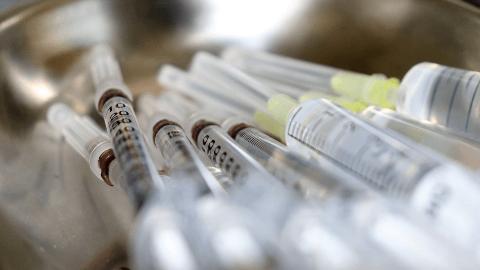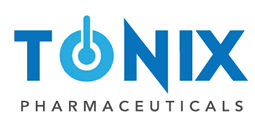预约演示
更新于:2025-06-24
Cocaine Esterase
更新于:2025-06-24
概要
基本信息
原研机构 |
在研机构- |
最高研发阶段终止临床2期 |
首次获批日期- |
最高研发阶段(中国)- |
特殊审评突破性疗法 (美国) |
登录后查看时间轴
关联
3
项与 Cocaine Esterase 相关的临床试验NCT06045793
A Single-Blind, Randomized Study Comparing The Efficacy And Safety Of A Single Dose Of TNX-1300 To Placebo With Usual Care For The Treatment Of Signs And Symptoms Of Acute Cocaine Intoxication In Emergency Department Subjects (CATALYST Study)
This is a Phase 2 single-blind, randomized, multicenter study to compare the efficacy and safety of a single dose of TNX-1300 to placebo with usual care in patients with acute cocaine intoxication within the emergency department setting.
开始日期2024-08-16 |
申办/合作机构 |
NCT04996056
An Open-Label, Randomized Pilot Study Comparing the Safety of a Single Dose of TNX-1300 to Usual Care (UC) Alone for the Treatment of Signs and Symptoms of Acute Cocaine Intoxication in Male Emergency Department (ED) Subjects
An Open-Label, Randomized Pilot Study Comparing the Safety of a Single Dose of TNX-1300 to Usual Care (UC) Alone for the Treatment of Signs and Symptoms of Acute Cocaine Intoxication in Male Emergency Department (ED) Subjects
开始日期2021-09-03 |
申办/合作机构 |
NCT01846481
A Randomized, Double-blind, Placebo-controlled, Dose of RBP-8000 Following IV Cocaine to Evaluate the Pharmacokinetics Parameters of RBP-8000 and Cocaine and to Assess the Effects of Drug on Cocaine-induced Physiologic and Behavioral Effects in Cocaine Abusing Subjects
This is a randomized, 4-sequence, 2-period, double-blind, placebo controlled study in male and female subjects with an American Psychiatric Association Diagnostic and Statistical Manual DSM-IV-TR diagnosis of cocaine abuse.
开始日期2013-04-01 |
申办/合作机构 |
100 项与 Cocaine Esterase 相关的临床结果
登录后查看更多信息
100 项与 Cocaine Esterase 相关的转化医学
登录后查看更多信息
100 项与 Cocaine Esterase 相关的专利(医药)
登录后查看更多信息
7
项与 Cocaine Esterase 相关的文献(医药)2025-06-01·INTERNATIONAL JOURNAL OF BIOLOGICAL MACROMOLECULES
Development of cocaine esterase W/O/W nanoemulsions by a novel low-temperature double emulsification approach for cocaine abuse treatment
Article
作者: Wang, Weimin ; Xu, Nuo ; Liu, Junjun ; Li, Zhenzhen ; Hou, Shurong ; Deng, Xingyu ; Ma, Lei ; Li, Hualing ; Chi, Man ; Chen, Wenwen ; Liu, Fengling ; Chen, Xiabin ; Hu, Qi ; Lai, Suitian
Cocaine esterase is highly effective against cocaine but has a short in vivo half-life and is sensitive to temperature, limiting its clinical use. Encapsulation of cocaine esterase in water-in-oil-in-water (W/O/W) nanoemulsions offers a promising approach to improve its stability and therapeutic effectiveness. In this study, we developed a novel low-temperature double emulsification method to encapsulate the cocaine esterase mutant (E196-301) into W/O/W nanoemulsions (designated as CocE NEs). The oil phase, containing phospholipids, was cooled to room temperature under high-speed stirring before the enzyme-containing aqueous phase was added. This process prevented the precipitation of soybean phospholipids and preserved over 90 % of E196-301's enzymatic activity. Notably, the temperature stability of E196-301 has been greatly improved, E196-301 within the inner aqueous phase maintained over 90 % of its activity under temperature variations between 37 °C and 40 °C. Importantly, the in vivo half-life of E196-301 increased from 16.26 ± 1.94 min to 57.25 ± 14.71 min (3 mg/kg, i.v.). Pharmacodynamic studies revealed CocE NEs (3 mg/kg, i.v.) significantly reduced cocaine-induced locomotor sensitization in mice within 45 min, by attenuating cocaine-induced (25 mg/kg, i.p.) dopamine signaling in the brain. CocE NEs represent a promising candidate for the sustained prevention and treatment of cocaine abuse.
2019-09-01·Drug and alcohol dependence2区 · 医学
Evaluation of the cholinesterase activity of a potential therapeutic cocaine esterase for cocaine overdose
2区 · 医学
Article
作者: Zhang, Yun ; Yin, Xiaopu ; Zhu, Yao ; Hou, Shurong ; Chen, Xiabin ; Chen, Rong ; Chen, Xiaoling ; Xie, Tian ; Zhang, Chao ; Kong, Yichao
BACKGROUND:
Cocaine is a commonly abused drug and there is no approved medication specifically to treat its addiction or overdose. Bacterial cocaine esterase (CocE)-derived RBP-8000 is currently under clinical development for cocaine overdose treatment. It is proven to be effective for human use to accelerate cocaine metabolism into physiologically inactive products. Besides cocaine, RBP-8000 may hydrolyze the neurotransmitter acetylcholine (ACh), however, no study has reported its cholinesterase activity. The present study aims to examine RBP-8000's cholinesterase activity and substrate selectivity to address the potential concern that this enzyme therapy might produce cholinergic side-effects.
METHODS:
Both computational modeling and experimental kinetic analysis were carried out to characterize the potential cholinesterase activity of RBP-8000. Substrates interacting with RBP-8000 were modeled for their enzyme-substrate binding complexes. In vitro enzymatic kinetic parameters were measured using Ellman's colorimetric assay and analyzed by Michaelis-Menten kinetics.
RESULTS:
It is the first demonstration that RBP-8000 catalyzes the hydrolysis of acetylthiocholine (ATC). However, its catalytic efficiency (kcat/KM) against ATC is 1000-fold and 5000-fold lower than it against cocaine at 25 °C and 37 °C, respectively, suggesting RBP-8000 has the desired substrate selectivity for cocaine over ACh.
CONCLUSION:
Given the fact that clinically relevant dose of RBP-8000 displays insignificant cholinesterase activity relative to endogenous cholinesterases in human, administration of RBP-8000 is unlikely to produce any significant cholinergic side-effects. This study provides supplemental evidences in support of further development of RBP-8000 towards a clinically used pharmacotherapy for cocaine overdose.
2016-08-19·ACS chemical biology2区 · 生物学
Metabolic Enzymes of Cocaine Metabolite Benzoylecgonine
2区 · 生物学
Article
作者: Zheng, Fang ; Zhan, Max ; Chen, Xiabin ; Zheng, Xirong ; Zhan, Chang-Guo ; Zhou, Ziyuan
Cocaine is one of the most addictive drugs without a U.S. Food and Drug Administration (FDA)-approved medication. Enzyme therapy using an efficient cocaine-metabolizing enzyme is recognized as the most promising approach to cocaine overdose treatment. The actual enzyme, known as RBP-8000, under current clinical development for cocaine overdose treatment is our previously designed T172R/G173Q mutant of bacterial cocaine esterase (CocE). The T172R/G173Q mutant is effective in hydrolyzing cocaine but inactive against benzoylecgonine (a major, biologically active metabolite of cocaine). Unlike cocaine itself, benzoylecgonine has an unusually stable zwitterion structure resistant to further hydrolysis in the body and environment. In fact, benzoylecgonine can last in the body for a very long time (a few days) and, thus, is responsible for the long-term toxicity of cocaine and a commonly used marker for drug addiction diagnosis in pre-employment drug tests. Because CocE and its mutants are all active against cocaine and inactive against benzoylecgonine, one might simply assume that other enzymes that are active against cocaine are also inactive against benzoylecgonine. Here, through combined computational modeling and experimental studies, we demonstrate for the first time that human butyrylcholinesterase (BChE) is actually active against benzoylecgonine, and that a rationally designed BChE mutant can not only more efficiently accelerate cocaine hydrolysis but also significantly hydrolyze benzoylecgonine in vitro and in vivo. This sets the stage for advanced studies to design more efficient mutant enzymes valuable for the development of an ideal cocaine overdose enzyme therapy and for benzoylecgonine detoxification in the environment.
234
项与 Cocaine Esterase 相关的新闻(医药)2025-05-05
TNX-801 is a single-dose, live virus vaccine in development to protect against mpox and smallpox
TNX-801 protects immunocompromised animals from a lethal challenge with clade IIa monkeypox virus
Durability of TNX-801 vaccination shown by six-month protection of animals from a lethal challenge with rabbitpox
Tolerability of TNX-801 demonstrated in immunocompromised animals by no spreading to blood or tissues, even at high doses
April 24, 2025 -- Tonix Pharmaceuticals Holding Corp. (Nasdaq: TNXP) (Tonix or the Company), a fully-integrated biopharmaceutical company with marketed products and a pipeline of development candidates, presented data in an oral presentation at the World Vaccine Congress Washington 2025, held April 21-24, 2025, in Washington, D.C. The presentation titled, “A Novel Single-Dose, Attenuated Live, Minimally Replicative Mpox Vaccine”, highlighted positive preclinical efficacy data, demonstrating that TNX-801 protected animals from mpox and rabbitpox and was well tolerated, even in immunocompromised animals. A copy of the Company’s presentation is available under the Scientific Presentations tab of the Tonix website at www.tonixpharma.com.
“TNX-801 shows promise as a potential mpox and smallpox vaccine by providing protective immunity to animals with a single-dose,” said Seth Lederman, M.D., Chief Executive Officer of Tonix Pharmaceuticals. “TNX-801 was generally well tolerated, even in immunocompromised animals. The new data show durable six-month protection against a lethal challenge with rabbitpox virus and protection of immunocompromised animals against a lethal challenge with monkeypox clade IIa virus. These new data build upon prior studies showing protection of animals against a lethal challenge with intratracheal clade Ia mpox virus. In all of these studies, after a single dose vaccination, TNX-801 prevented both clinical disease and formation of lesions.”
Dr. Lederman continued, “The ongoing clade IIb mpox epidemic that started in 2022, and the more recent and ongoing clade Ib mpox epidemic, highlight the need for additional vaccine options, particularly single-dose options. Both the 2022 clade IIb and the 2024 clade Ib mpox epidemics have been declared by the World Health Organization (WHO) to be Public Health Emergencies of International Concern (PHEICs). We believe TNX-801 has the potential to make an impact towards preventing mpox and controlling future mpox epidemics.”
TNX-801 is a minimally replicative, live-virus vaccine based on synthesized horsepox that has been shown to provide single-dose immune protection against a monkeypox challenge with better tolerability than 20th century vaccinia live-virus vaccines in animals. In September 2024, Tonix announced that the WHO’s preferred target product profile (TPP), released at the WHO sponsored Mpox Research and Innovation Scientific Conference, aligns with the characteristics of TNX-801. Key elements of the WHO draft TPP include single-dose, durable protection, administration without special equipment, and stability at ambient temperature. Other potential beneficial characteristics include the ability to limit forward transmission, use in case-contact vaccination strategies and suitability for use in immunocompromised individuals.
TNX-801 (recombinant horsepox virus) is a single-dose, attenuated, minimally replicative, live virus vaccine based on horsepox in pre-clinical development to prevent mpox and smallpox. Tonix reported positive preclinical efficacy data, demonstrating that TNX-801 vaccination protected non-human primates against lethal challenge with monkeypox. After a single dose vaccination, TNX-801 prevented clinical disease and lesions and decreased shedding in the mouth and lungs of non-human primates. The findings are consistent with mucosal immunity and suggest the ability to block forward transmission, similar to Dr. Edward Jenner’s vaccine, which eradicated smallpox and kept mpox out of the human population. TNX-801 is based on synthesized horsepox which is believed to be more closely related to Dr. Jenner’s vaccine than 20th century vaccinia viruses.6 Smallpox vaccines descended from Jenner’s vaccine used prior to 1900 would be called horsepox by modern nomenclature. TNX-801 is delivered percutaneously with only one dose and therefore may achieve higher rates of community protection than two-dose vaccines by eliminating drop-out between doses and limiting forward transmission. Tonix has received official written response from a Type B pre-Investigational New Drug Application (IND) meeting with the U.S. Food and Drug Administration (FDA) to develop TNX-801 as a potential vaccine to protect against mpox disease and smallpox. Tonix has announced a collaboration with the Kenya Medical Research Institute (KEMRI) to design, plan and seek regulatory approval for a Phase I clinical study of TNX-801 in Kenya. The Company believes TNX-801 has the potential to make a global impact on mpox and the risk of smallpox because of its durable T-cell immune response, the potential to manufacture at scale, and the use of a lower dose than non-replicating vaccines. The FDA-approved non-replicating mpox vaccine Jynneos® requires two doses and provides a relatively short duration of protection. FDA also recently approved ACAM2000, a live, replicating vaccinia vaccine for prevention of mpox. ACAM200 is a clone from DryVax®, a 20th century vaccinia vaccine derived from the NYCBH strain. Pre-clinical results from an mRNA vaccine recently showed some protection from a Clade I monkeypox challenge, but with multiple break-through lesions in vaccinated animals.
Tonix is a fully integrated biopharmaceutical company focused on transforming therapies for pain management and vaccines for public health challenges. Tonix’s development portfolio is focused on central nervous system (CNS) disorders. Tonix’s priority is to advance TNX-102 SL, a product candidate for the management of fibromyalgia, for which an NDA was submitted based on two statistically significant Phase 3 studies for the management of fibromyalgia and for which a PDUFA (Prescription Drug User Fee act) goal date of August 15, 2025 has been assigned for a decision on marketing authorization. The FDA has also granted Fast Track designation to TNX-102 SL for the management of fibromyalgia. TNX-102 SL is also being developed to treat acute stress reaction and acute stress disorder under a Physician-Initiated IND at the University of North Carolina in the OASIS study funded by the U.S. Department of Defense (DoD). Tonix’s CNS portfolio includes TNX-1300 (cocaine esterase), a biologic in Phase 2 development designed to treat cocaine intoxication that has FDA Breakthrough Therapy designation, and its development is supported by a grant from the National Institute on Drug Abuse. Tonix’s immunology development portfolio consists of biologics to address organ transplant rejection, autoimmunity and cancer, including TNX-1500, which is an Fc-modified humanized monoclonal antibody targeting CD40-ligand (CD40L or CD154) being developed for the prevention of allograft rejection and for the treatment of autoimmune diseases. Tonix’s infectious disease portfolio includes TNX-801, a vaccine in development for mpox and smallpox, as well as TNX-4200 for which Tonix has a contract with the U.S. Department of Defense’s (DoD’s) Defense Threat Reduction Agency (DTRA) for up to $34 million over five years. TNX-4200 is a small molecule broad-spectrum antiviral agent targeting CD45 for the prevention or treatment of infections to improve the medical readiness of military personnel in biological threat environments. Tonix owns and operates a state-of-the art infectious disease research facility in Frederick, Md. Tonix Medicines, our commercial subsidiary, markets Zembrace® SymTouch® (sumatriptan injection) 3 mg and Tosymra® (sumatriptan nasal spray) 10 mg for the treatment of acute migraine with or without aura in adults.
* Tonix’s product development candidates are investigational new drugs or biologics. Their efficacy and safety have not been established and have not been approved for any indication.
Zembrace SymTouch and Tosymra are registered trademarks of Tonix Medicines. All other marks are property of their respective owners.
The content above comes from the network. if any infringement, please contact us to modify.

疫苗快速通道上市批准临床结果
2025-04-29
Plus, news about the Novo Nordisk Foundation and Tonix:
AbbVie’s Rinvoq gets label expansion:
The blockbuster JAK inhibitor
won approval
in the US to treat adults with giant cell arteritis, an autoimmune disease that causes inflammation of the arteries, often in the scalp and head. Rinvoq
was approved
in Europe for the same condition earlier this month.
— Nicole DeFeudis
#AUA2025: Relmada Therapeutics’ interim Phase 2 data in bladder cancer:
The company
said
NDV-01, a reformulation of two chemo drugs, achieved an 85% overall response rate in 20 patients with non-muscle invasive bladder cancer. Two patients with carcinoma in situ achieved a complete response. Already below $1.00, Relmada’s stock price
$RLMD
was down 18% on Tuesday morning.
— Max Gelman
Novo Nordisk Foundation expands certain grants beyond Denmark:
The grants, which are
awarded
through the foundation’s annual Challenge Programme, will now be available to researchers in most of Europe. The new area includes Europe’s Schengen area — this accounts for most EU member countries plus a handful of non-member countries — Ireland and the UK. The overall budget for grants this year is DKK 600 million (€80 million).
— Max Gelman
Tonix discontinues cocaine intoxication trial:
The biotech discontinued the Phase 2 study for TNX-1300 due to slower-than-projected enrollment, it said in an
SEC filing
last week.
— Max Gelman
Hello, Mark Smith
You’re an essential part of the biopharma world. Share your voice on this important question to help shape our understanding of the industry.
Can you help us out?
Hello, Mark Smith
You’re an essential part of the biopharma world. Share your voice on this important question to help shape our understanding of the industry.
Can you help us out?
临床结果临床2期上市批准临床3期
2025-04-28
Tonix Pharmaceuticals\' study was set up in an emergency department setting but was hampered by slow enrollment. \n Tonix Pharmaceuticals has no tonic for cocaine intoxication, with the biopharma terminating a midstage trial for the condition amid poor trial enrollment.The investigational drug in question, TNX-1300, had snagged an FDA breakthrough therapy designation to treat cocaine intoxication and overdose.In a Securities and Exchange Commission filing made public Friday, however, Tonix said it has discontinued enrollment and terminated the study, dubbed Catalyst. The trial was set up in an emergency department, but enrollment in this setting “was slower than projected,” Tonix said in the filing, noting that the related trial termination was not due to safety or efficacy concerns. The investigational therapy works as a recombinant protein enzyme via a non-disease-producing strain of E. coli bacteria.Tonix said that there is no specific pharmacotherapy indicated for cocaine intoxication, which can prompt life-threatening risks including heart attacks, respiratory failure and seizures.It’s not curtains yet for TNX-1300, as Tonix added that it will be “evaluating new study designs and new endpoints for further development” of the drug, though the company did not give specifics. In 2022, the biopharma had received financing for the study from the U.S. government via a pact with the National Institute on Drug Abuse, part of the National Institutes of Health. Tonix is no stranger to drug and trial setbacks. At the end of 2023, the company dropped a major depression disorder therapy after the drug flamed out of a phase 2 trial.A few months prior, Tonix abandoned testing out a cyclobenzaprine drug for fibromyalgia-like long COVID after the asset failed to show a statistically significant improvement in pain symptoms.There however may be reprieve for that therapy, called TNX-102 SL, on the horizon. Tonix is gearing up for what it hopes will be an FDA approval for the med in fibromyalgia, with an FDA decision date expected before or by Aug. 15.

突破性疗法临床2期
100 项与 Cocaine Esterase 相关的药物交易
登录后查看更多信息
研发状态
10 条进展最快的记录, 后查看更多信息
登录
| 适应症 | 最高研发状态 | 国家/地区 | 公司 | 日期 |
|---|---|---|---|---|
| 毒性 | 临床2期 | 美国 | 2024-08-16 | |
| 可卡因相关疾病 | 临床2期 | 美国 | 2021-09-03 |
登录后查看更多信息
临床结果
临床结果
适应症
分期
评价
查看全部结果
| 研究 | 分期 | 人群特征 | 评价人数 | 分组 | 结果 | 评价 | 发布日期 |
|---|
No Data | |||||||
登录后查看更多信息
转化医学
使用我们的转化医学数据加速您的研究。
登录
或

药物交易
使用我们的药物交易数据加速您的研究。
登录
或

核心专利
使用我们的核心专利数据促进您的研究。
登录
或

临床分析
紧跟全球注册中心的最新临床试验。
登录
或

批准
利用最新的监管批准信息加速您的研究。
登录
或

生物类似药
生物类似药在不同国家/地区的竞争态势。请注意临床1/2期并入临床2期,临床2/3期并入临床3期
登录
或

特殊审评
只需点击几下即可了解关键药物信息。
登录
或

生物医药百科问答
全新生物医药AI Agent 覆盖科研全链路,让突破性发现快人一步
立即开始免费试用!
智慧芽新药情报库是智慧芽专为生命科学人士构建的基于AI的创新药情报平台,助您全方位提升您的研发与决策效率。
立即开始数据试用!
智慧芽新药库数据也通过智慧芽数据服务平台,以API或者数据包形式对外开放,助您更加充分利用智慧芽新药情报信息。
生物序列数据库
生物药研发创新
免费使用
化学结构数据库
小分子化药研发创新
免费使用

